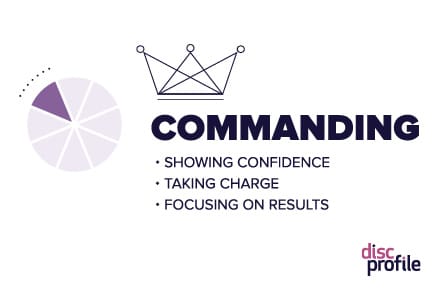People whose DiSC® profile shows a D style tend to be direct, forceful, and strong-willed. They are assertive and like to be in control. People with D styles focus on results and like to win. They likely have a clear vision of how the world should be, and they want to progress quickly toward that goal.
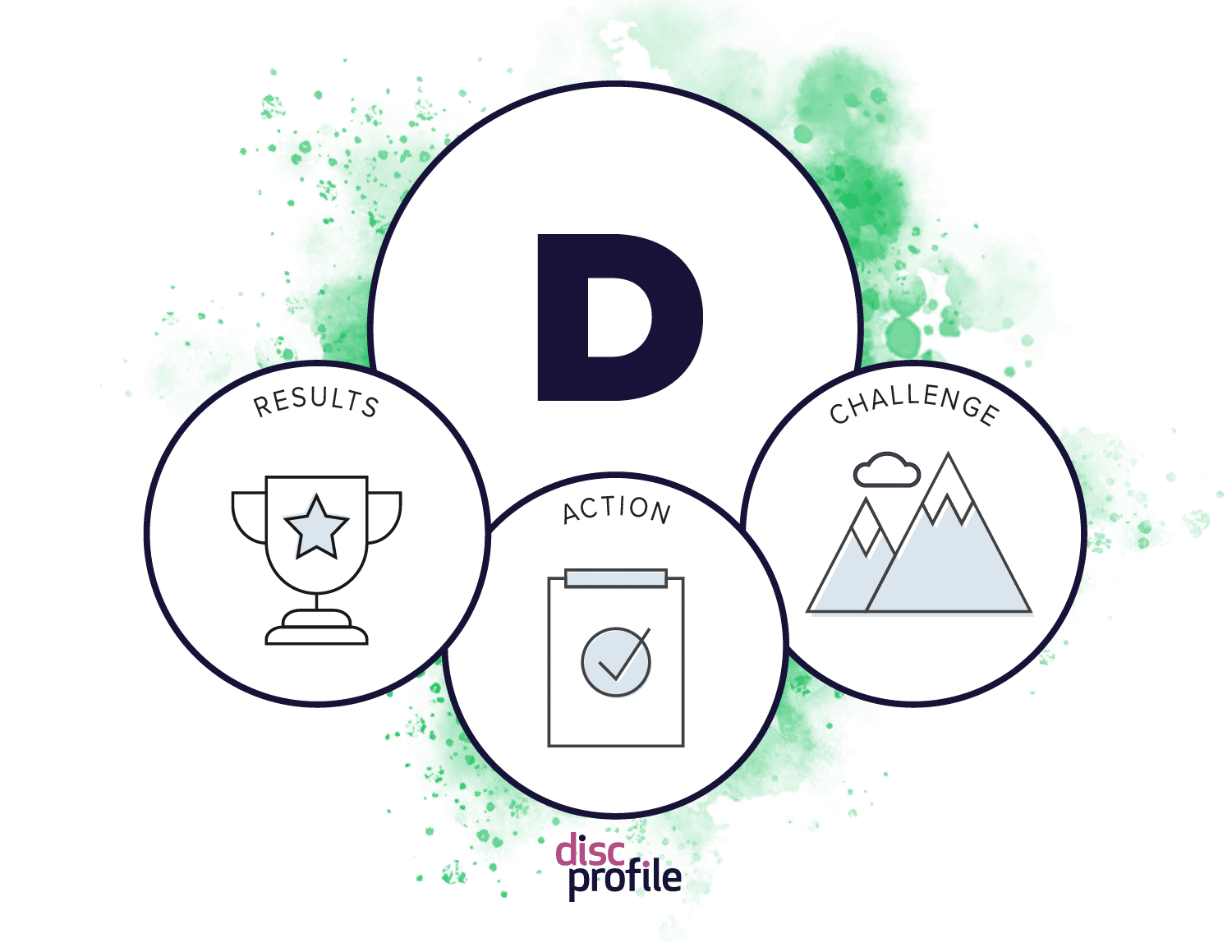
The DiSC® D personality type at a glance
- Traits: Strong-willed, self-reliant, independent thinkers, direct, ambitious, assertive, straightforward, controlling, easily bored, bold, firm, tough-minded, outspoken
- Driven by: Bottom-line results, victory
- Anxieties: Being taken advantage of, appearing weak
- Influences others by: Assertiveness, insistence, competition
- In tense situations: Speaks up about problems, looks to even the score
How well or how strongly this matches your own D style will depend on how close your dot is to the edge of the DiSC circle. The less strongly inclined you are to this style—or the closer your dot is to the center—the more likely it is that some of these traits will be expressed less frequently.
What does it mean to have a D style in DiSC?
The Everything DiSC® assessment measures respondents on eight scales: Dominance (D), Di/iD, influence (i), iS/Si, Steadiness (S), SC/CS, Conscientiousness (C), and CD/DC. As you might expect, people with the D style score highest on the D scale.
Some respondents fall in the D quadrant but show tendencies that also align with C or i styles, assigning them DC or Di styles. Others fall solidly in the middle of the D quadrant.
Everyone is a blend of all twelve DiSC styles, but most people align best with one or two. All DiSC styles are equally valuable.
What is the opposite DiSC style of D?
The circumplex model of Everything DiSC makes it easy to see the wide variety of personality types and how they relate to one another. To better understand your D style, you can look at it through the lens of its opposite style, S.
People with D styles likely score lower on S-scale measurements like being calm and accommodating. D-style folks may display S-type behaviors at times, but it will likely take them a lot of energy to do so.
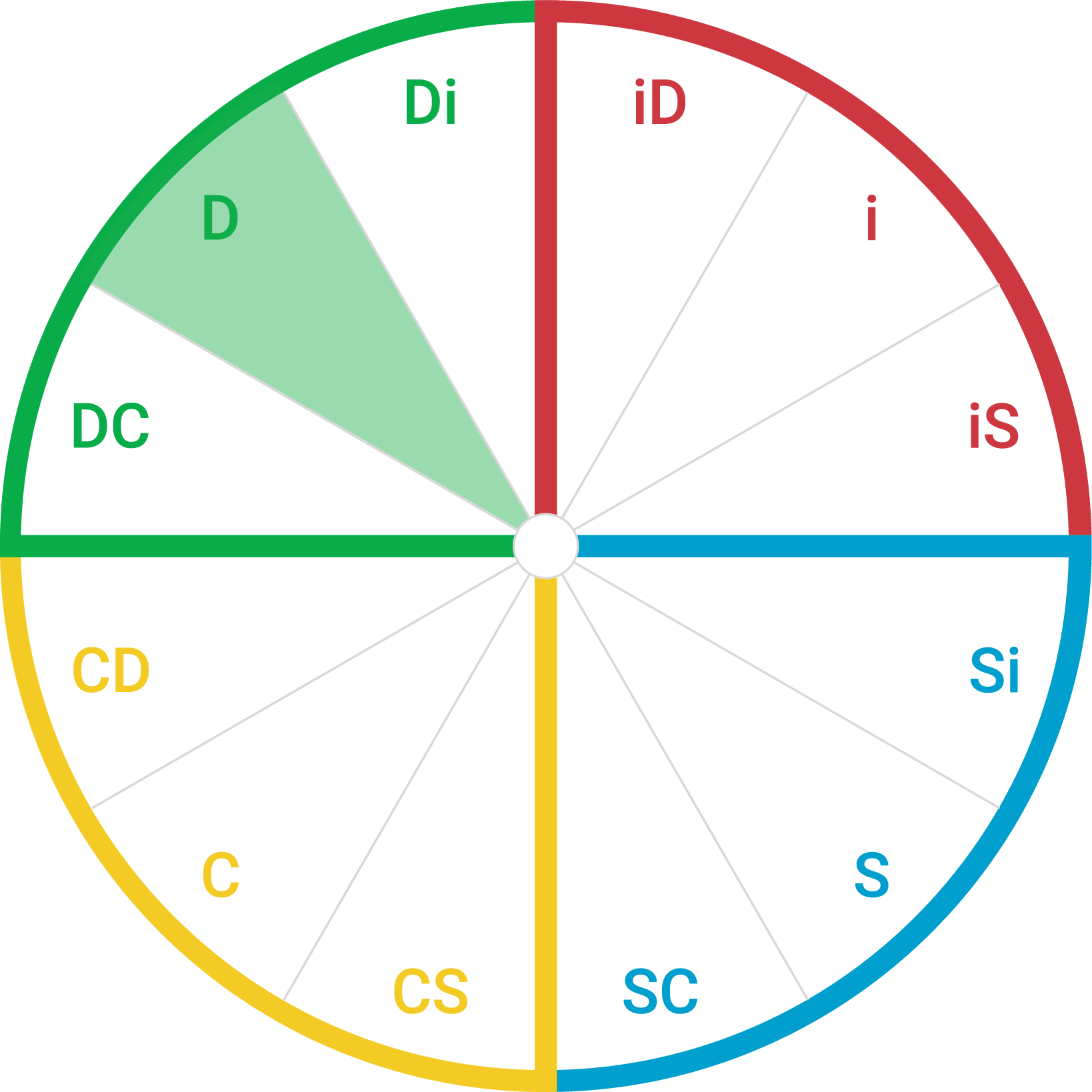
- In general, S-style people place a high value on supporting others, while D styles are more motivated by competition.
- The S-type personality usually prefers stable environments, while D styles seek novelty and challenge.
- S styles enjoy collaboration and making people feel included; D styles want more independence.
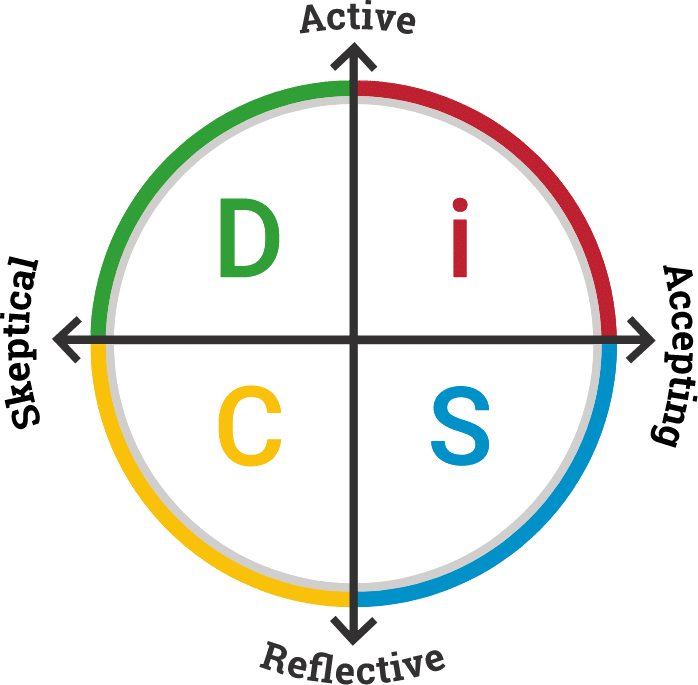
What motivates the D style?
People with DiSC D styles are motivated by results, action, and challenge.
Results
- wanting to make their mark
- always looking for new challenges and opportunities
- competitive and driven
Action
- focused on achieving their goals quickly
- like it when people cut to the chase
- bold, active style
Challenge
- want to control outcomes
- are questioning and independent-minded
- relish an opportunity to prove themselves
What are the D style’s driving assumptions?
We all have driving assumptions: unconscious beliefs that shape our personalities and influence our decisions. Those with a DiSC D style typically have these four core psychological needs: the need to be strong, the need to be in control, the need to be on top, and the need for progress. Various people with D styles will identify with these needs to varying degrees.
These statements are more likely to strike home with a D style than with people of other styles:
- I’m valuable because I achieve or accomplish.
- I should always be doing something useful.
- I can do bigger and bigger things.
- I should never show vulnerability.
- I need to feel powerful and in control of my future.
- If I’m not in control, I open myself up to disaster.
- Everybody needs to respect me.
These beliefs can be both destructive and productive. They can make D-style people come off as blunt and demanding to people of other styles. But they can also lead D-style folks to push through obstacles that might make other people give up on their goals.
How does the D style handle stress?
Different things will cause stress for people of different personality styles. D styles are likely invigorated by challenges and pressure that would be much more stressful to other styles.
What does stress out a D-type personality:
- lacking autonomy and control
- having their authority challenged
- feeling deprived of personal agency or freedom
- dealing with incompetent people
- getting bogged down in routine tasks
- following an inefficient process
Under stress, D styles tend to:
- be quite blunt
- grow impatient with others
- look for ways to take charge
- exert influence
- have a real aversion to showing vulnerability
How can I work well with D-style people?
People with DiSC D personality types bring a lot to their workplaces. They are tough-minded and driven to achieve results.
Tips for working with D personality types:
- If you feel taken aback by something they say, point it out and ask for clarification.
- Restate your beliefs instead of just giving in when they become insistent.
- Show how your ideas will get results.
- Focus on the big picture.
- Be direct and succinct. Don’t bog them down with details they don’t need.
- Focus on solutions rather than problems.
- Be assertive. Don’t beat around the bush or try to avoid difficult discussions.
- Recognize the value of their drive to achieve.
The D style and teamwork
D-style teammates are generally action-oriented and enjoy challenges. They can help teammates focus on the big picture and achieve results.
Strengths of D-style teammates:
- look to seize upon new opportunities
- good at seeing the big picture
- self-starters
- don’t let obstacles stop their progress
- direct communicators
Challenges of D-style teammates:
- can be impatient
- competitive nature can lead them to focus more on individual than team goals
- may miss important details in the drive to keep moving forward
- can be rash or take too many risks
Read more: Team building
What if there are many D-style people on a team?
The mix of individual styles within a group creates a larger DiSC group culture. When a group displays a D culture (with many people of Di, D, and DC styles) it tends to be dynamic, driven, and innovative. We call this the “get it done” team.
Advantages of the D group culture:
- gives straightforward feedback
- drives toward results
- makes decisions without wasting time
Drawbacks of the D group culture:
- leads to tension and burnout
- overemphasizes status
- creates power struggles that lead to poor decisions
Read more: DiSC D group culture
Which careers are good for DiSC D personalities?
People of any personality type can find success in any job field. We don’t recommend basing career decisions (or hiring decisions) on personality type alone.
Although your DiSC profile can’t tell you what career to pursue, it can help you clarify what you’re looking for in a job. Reviewing your DiSC profile can help you articulate what gives you energy and what drains it, as well as what your core motivators and stressors are.
For example, people with D styles tend to value dynamic and engaging environments that offer personal autonomy and a chance to prove oneself. D-type people could explore jobs in entrepreneurship, arts and entertainment, media, medicine, consulting, sales, and many other fields that welcome their ambition and give them a sense of status.
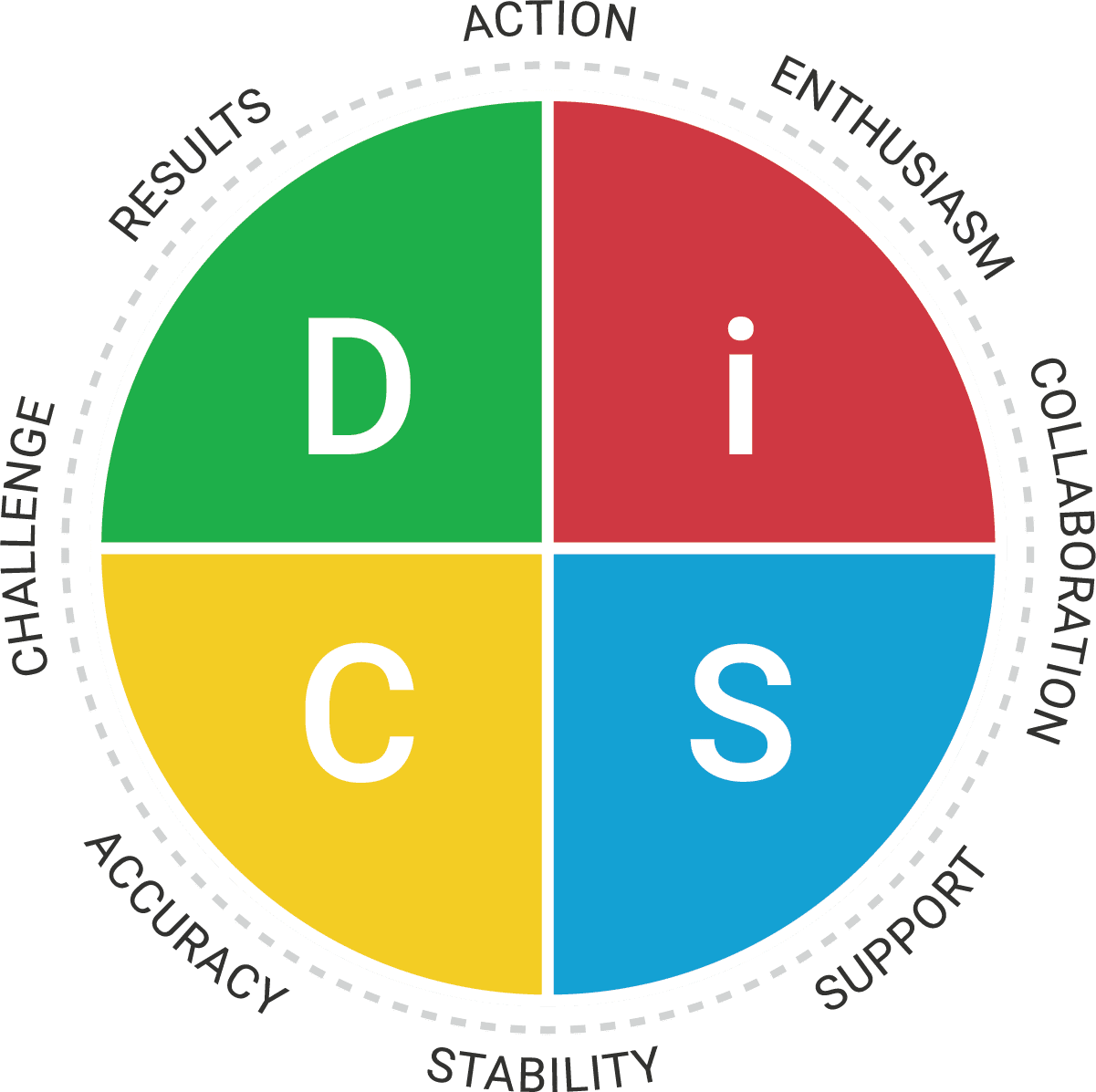
Do D personality types make good leaders, managers, and salespeople?
Are D types good leaders?
People of all DiSC styles can be great leaders if they understand their natural strengths and challenges around leadership. There is no single DiSC style that is best for leadership. Rather, effective leaders move between styles to meet the needs of different situations.
D-style people are commanding leaders: confident and results-oriented. They are good at taking charge, setting and sticking to aggressive timelines, and speaking with conviction.
On 360-degree-type leadership assessments, D-style leaders tend to rate highly in areas like showing confidence, taking charge, stretching boundaries, setting high expectations, and focusing on results. They receive lower ratings in areas such as showing diplomacy, showing modesty, creating a positive environment, staying open to input, and maintaining composure.
Read more: D-type leaders
What are D-style people like as managers?
Managers with the DiSC D style:
- are driven, and want their employees to show the same urgency
- prioritize action and rapid progress
- make firm decisions
- respond best to people who can quickly help them achieve success
- openly challenge the status quo
D-type managers probably enjoy:
- pushing their team to accomplish big things
- instilling a sense of urgency
- making bold decisions
- solving problems head on
D-style managers likely don’t enjoy:
- feeling like they have to “coddle” their employees
- spending a lot of time praising their team
- dealing with overly emotional people
- following systems or procedures they think are a waste of time

Read more: Management
Do D-style people make good salespeople?
Each DiSC style has its natural strengths and challenges when it comes to sales. Someone’s DiSC style does not predict how successful they will be as a salesperson.
Salespeople with D styles are persistent and assertive. They focus on their main objective, and help the customer keep that focus as well.
Other characteristics of D salespeople:
- avoid unnecessary details
- highlight the payoff
- focus on the customer’s main objectives
The overriding priority for salespeople with D personality types is getting results.
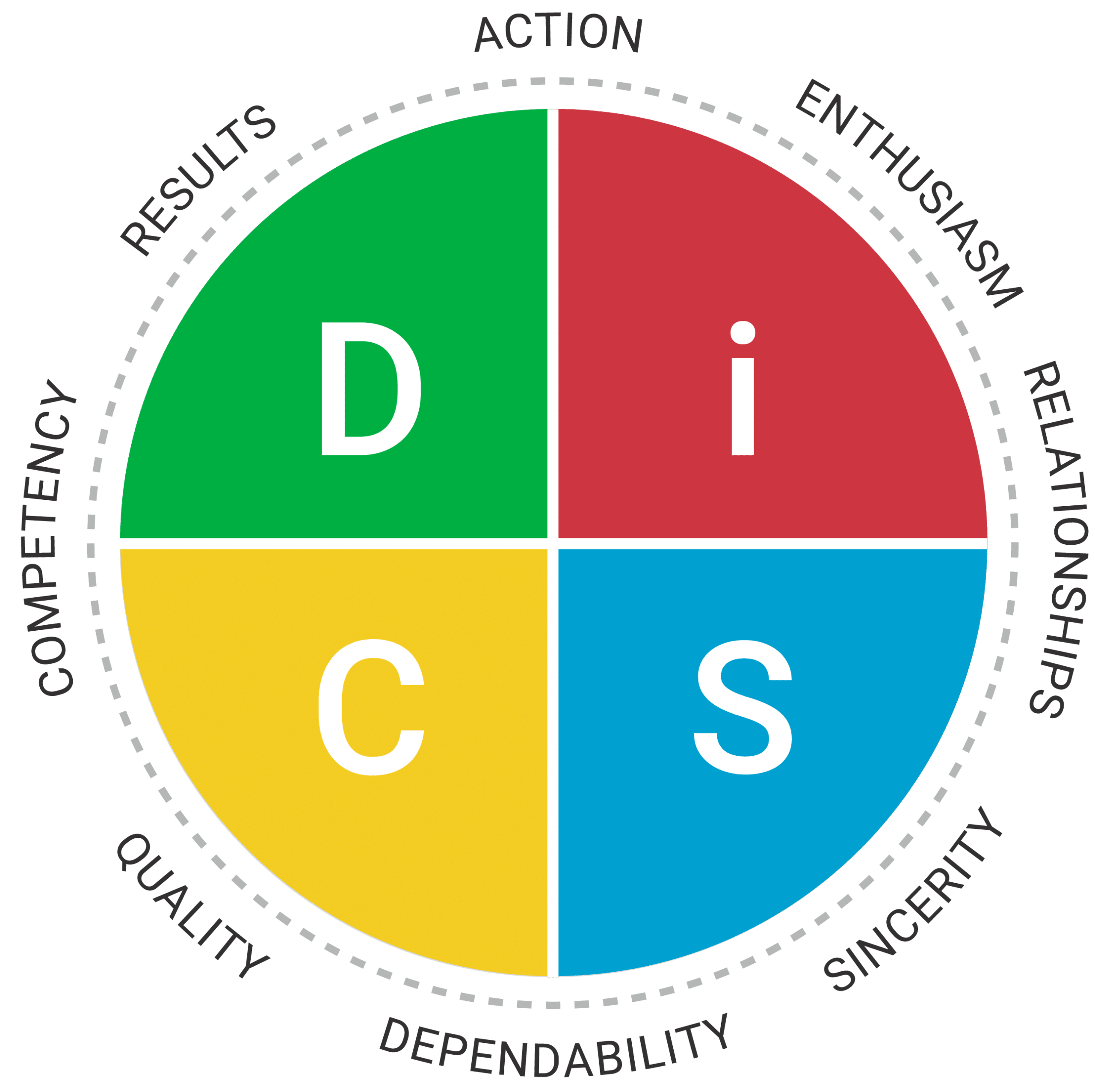
Read more: The 8 styles of salespeople
How does the D personality type deal with conflict?
People with D styles are often seeking control in conflict situations. They cut right to the chase and push strongly for their opinions.
Conflict is a part of every workplace, and many studies show that some amount of conflict is actually healthy, when this conflict is productive, not destructive.
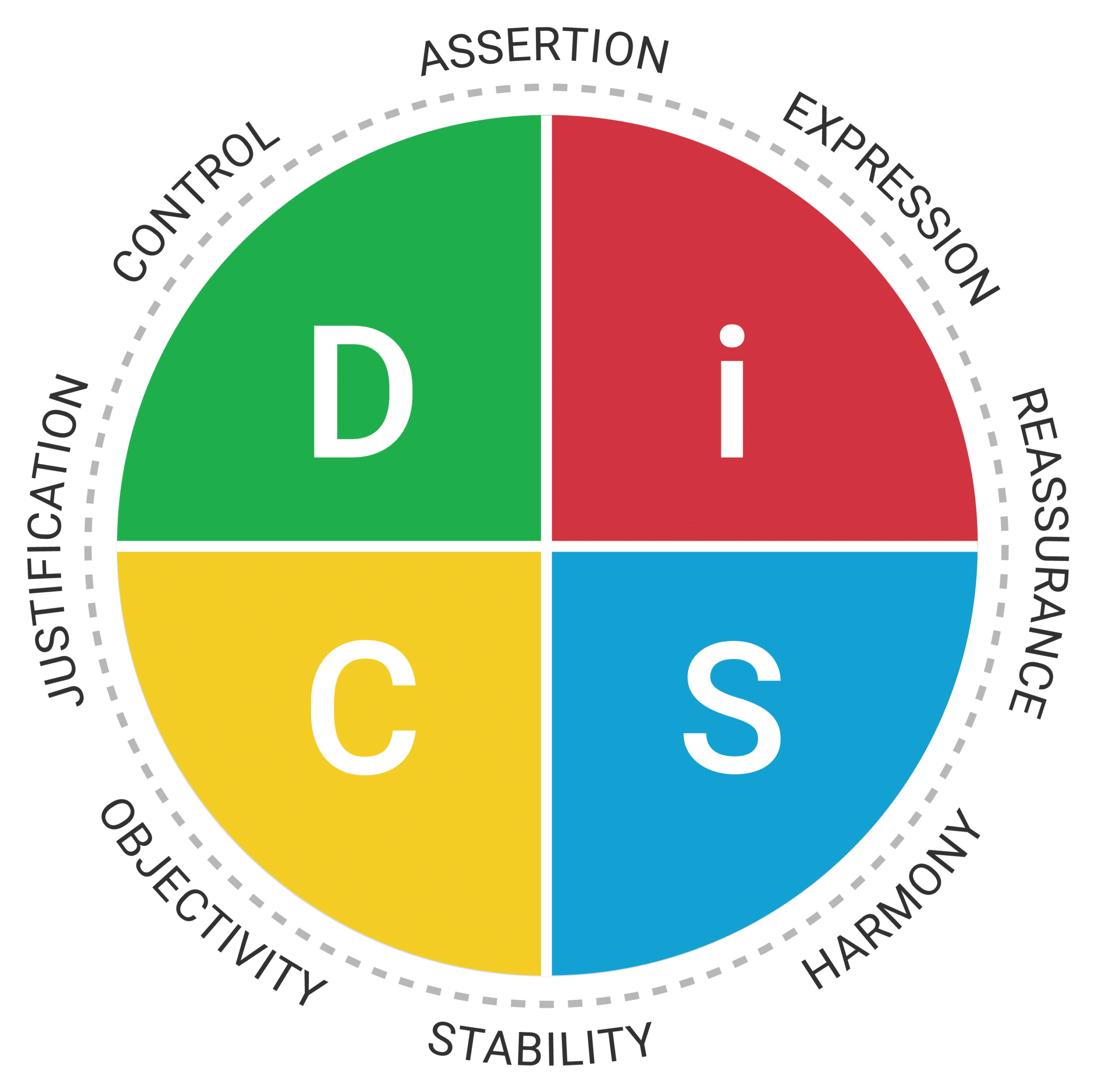
Tendencies of D styles that are productive during conflict:
- straightforward with opinions
- acknowledge tough issues
- willingness to have objective debates
- driven to find a resolution rather than having an issue drag on
The same personality traits driving the above tendencies can also drive destructive tendencies during conflict, like:
- becoming aggressive, creating win-lose situations
- refusing to bend
- not listening well, not seeking to understand others’ perspectives
- overpowering others
- being insensitive and impatient
If you are in conflict with someone with a D style, try these tips:
- Address issues quickly and directly.
- Don’t take their bluntness personally.
- If you also have a D style, you may notice both of you digging your heels in. Articulate this to the other person, then take a step back and reevaluate.
- Resist the urge to give in merely for the sake of harmony.
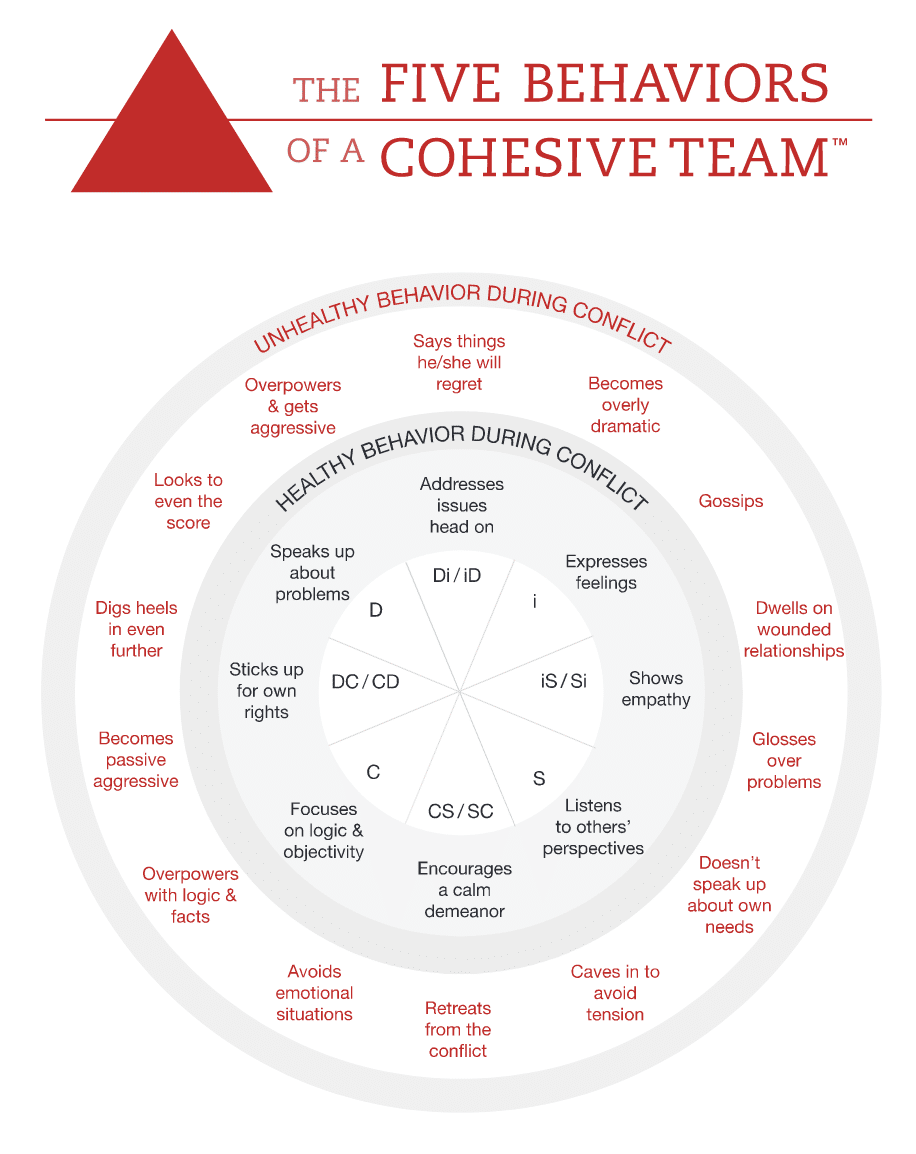
Is the DiSC D style emotionally intelligent?
Emotional intelligence (EQ) means many things. It’s not a single trait that some people have and some people don’t. It’s more about calling upon the most skillful mindset for each situation. Each DiSC style has natural strengths and challenges with EQ.
Of the eight EQ mindsets described in Everything DiSC Agile EQ, D styles align most closely with the self-assured mindset. This means D-style people are likely to:
- assert their opinions and rights
- project confidence in their ideas and abilities
- take charge of situations
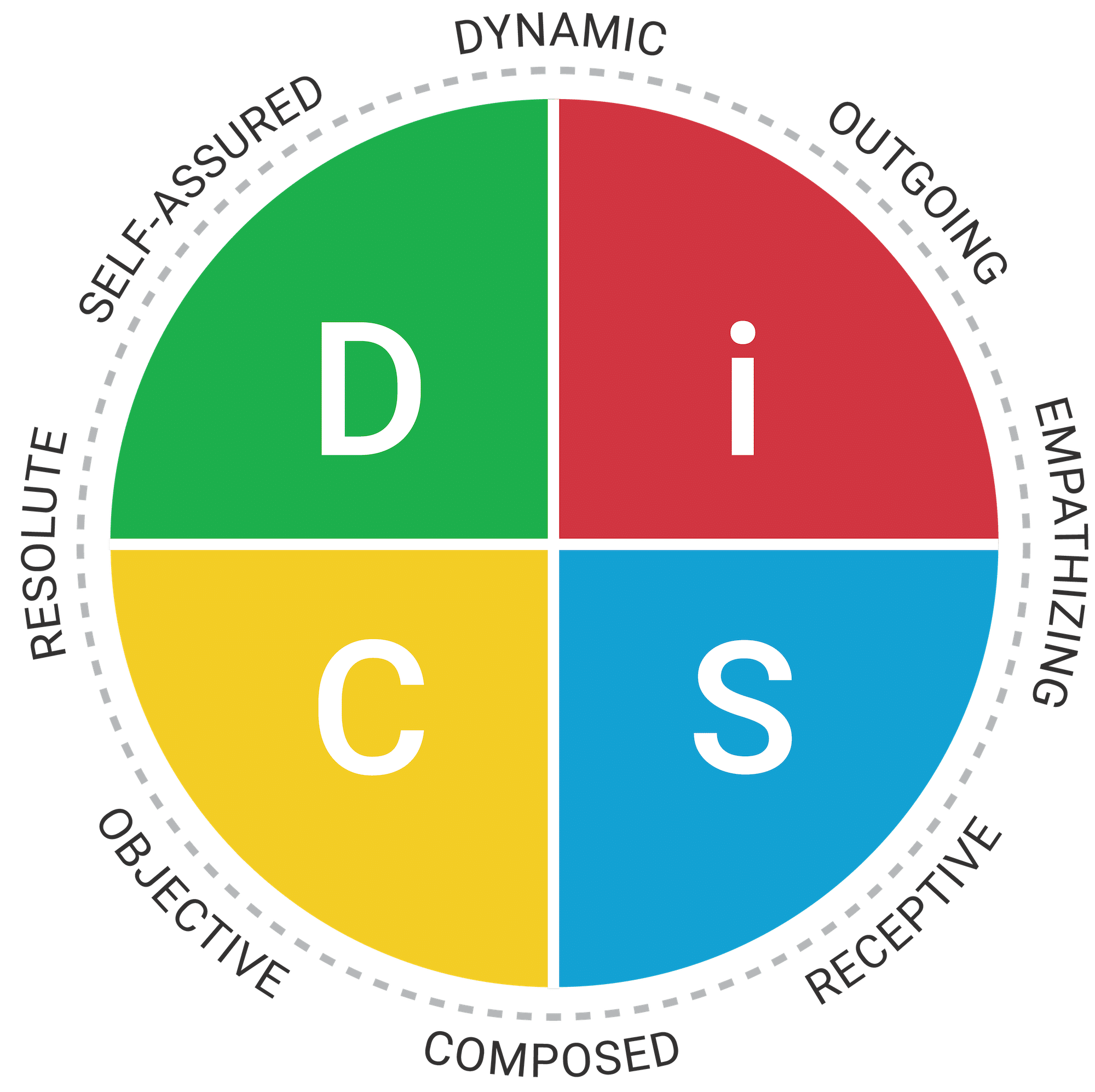
Read more: Emotional Intelligence (EQ)
What are some growth opportunities for DiSC D styles?
Unlike many other personality assessments, Everything DiSC is developmental rather than just informational. If you take an Everything DiSC assessment, you’ll get both an understanding of your personality and an individualized path for personal development.
In general, D-style people may benefit from working on:
- considering others’ perspectives
- sharing power and control
- showing tact or diplomacy
- practicing patience
- leaving space for others to speak
What is my DiSC style?
Do you have the DiSC D personality type? If so, how does your unique personality differ from the typical D type? Taking a DiSC assessment is the first step toward meeting many personal development goals. Not only will you understand your own behaviors more, but you’ll learn how to form better relationships at home and work. We recommend starting your DiSC journey with Everything DiSC Workplace.


